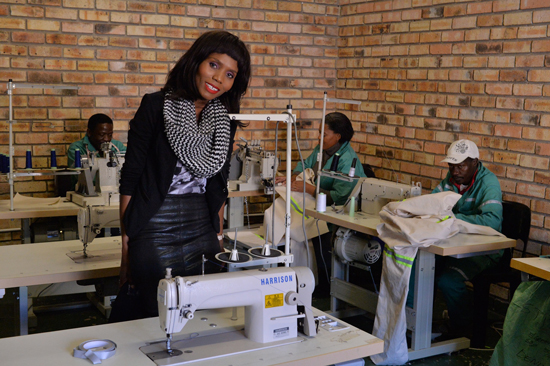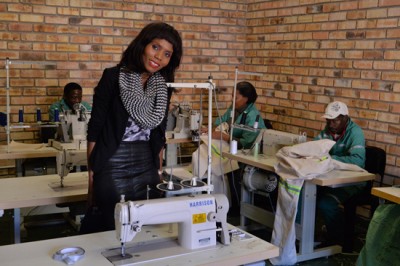
Entrepreneur Tebogo Molotsi (28) went from humble beginnings to being co-owner of Stitches Clothing – a 100% black women owned manufacturing company in Rustenburg.
What did you study after matric?
Due to financial constraints, I was unable to further my studies. So, after Grade 12, I had to find work to help sustain my mother’s income.
Where did you first work?
Getting a job so soon after Grade 12 was not easy, and because I did not have any higher education, I had to take what I could. So my first job was as an admin clerk for an engineering company, and I was paid R 1 700 per month.
What do you do now?
I am the co-owner of a business called Stitches Clothing, which I started with my mother, Rina Molotsi. Stitches Clothing is a 100% black women owned company engaged in the manufacturing and supplying of protective clothing to a variety of industries. We realised that to further consolidate our market advantage, we must constantly look to innovate and provide products that deliver both price and performance value. Trends in the South African labour force indicates a continuing increase in the number of women entering harsh industries, such as mining and other heavy-duty work environments in construction. We therefore saw that there is a need to introduce safety clothing that is designed for women. We redesigned protective clothing for women to accommodate their unique body structures, and to ensure proper fit, comfort and maximum protection. We currently employ 35 people, the majority of which are women from local communities.
Please tell us about your relationship with Anglo American? How did it start?
It’s not easy for small businesses to get a foot in the door – the challenges are endless, and for us, funding was our biggest and toughest obstacle. Inadequate working capital caused major setbacks for us, and adversely impacted our morale. Due to complicated banking procedures and insistence on collateral, our business was not growing until one day I came across an article in a newspaper about Anglo Zimele. That was when my relationship with Anglo American started. I applied for a loan, which was approved within a week. With the loan, we moved to a bigger factory and acquired new machines.
What sort of challenges do you face in this industry? How do you overcome them?
The influx of low-cost Chinese textile and clothing into South Africa has a negative impact on local companies, the Proudly South African buy local campaign is helping us distinguish our products against foreign made goods, and this is encouraging consumers to support us.
What’s the best and worst thing about your job?
The best part of running my own business is that I have the ability not only to create opportunities for myself, but for those that I employ as well.
What kind of personality does one need to survive in your industry?
Running a business is definitely not for the faint hearted, one needs be very resilient and hard working.
If anyone would like to do what you do, what advice would you give them?
My advice to anyone looking to start a business is that no matter what you might be going through, don’t quit, no matter how impossible your situation may seem, stay on course and always remember the sky is the limit, aim for the moon.





